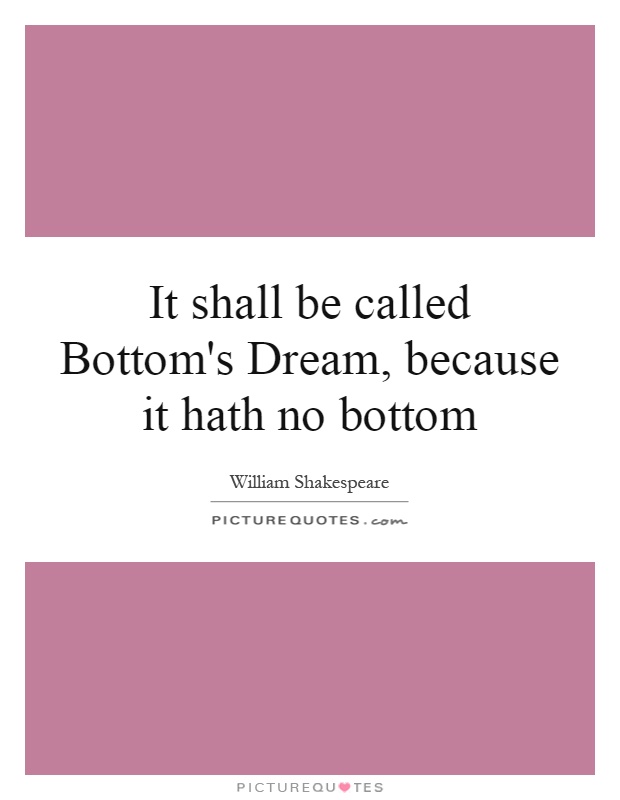It shall be called Bottom's Dream, because it hath no bottom

It shall be called Bottom's Dream, because it hath no bottom
"It shall be called Bottom's Dream, because it hath no bottom" is a famous line from William Shakespeare's play A Midsummer Night's Dream. This line is spoken by the character Nick Bottom, a weaver who is transformed into a donkey by the mischievous fairy Puck. Bottom's Dream is a play within the play that the characters in A Midsummer Night's Dream perform for the Duke of Athens at the end of the play.The line "It shall be called Bottom's Dream, because it hath no bottom" is a humorous and self-aware comment on the absurdity and fantastical nature of the play that Bottom and his fellow actors perform. The play within the play is a farcical and nonsensical retelling of the tragic love story of Pyramus and Thisbe, filled with over-the-top melodrama and ridiculous dialogue. Bottom's Dream is a parody of the melodramatic and overly sentimental plays that were popular in Shakespeare's time, and the line serves as a tongue-in-cheek acknowledgment of the play's lack of depth and seriousness.
However, the line "It shall be called Bottom's Dream, because it hath no bottom" can also be interpreted in a more metaphorical sense. In the context of A Midsummer Night's Dream, Bottom's Dream represents the dreamlike and fantastical nature of the play as a whole. The world of A Midsummer Night's Dream is one of magic, love potions, and fairy mischief, where reality and fantasy blur together. The line suggests that the play is a bottomless well of imagination and creativity, with endless possibilities and layers of meaning to explore.
Overall, the line "It shall be called Bottom's Dream, because it hath no bottom" captures the playful and whimsical spirit of A Midsummer Night's Dream, while also hinting at the deeper themes and complexities that lie beneath the surface of the play. It is a reminder that Shakespeare's works are rich and multi-layered, with endless depths to explore and interpret.












 Friendship Quotes
Friendship Quotes Love Quotes
Love Quotes Life Quotes
Life Quotes Funny Quotes
Funny Quotes Motivational Quotes
Motivational Quotes Inspirational Quotes
Inspirational Quotes